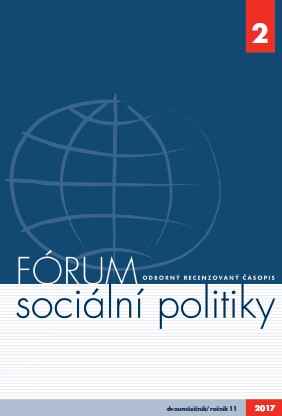Návratnost výběru daní z příjmů osob samostatně výdělečně činných z pohledu státu
Return on the collection of taxes on the income of self-employed persons
Author(s): Lenka ŘíhováSubject(s): Labor relations, Present Times (2010 - today), Fiscal Politics / Budgeting, Socio-Economic Research
Published by: Výzkumný ústav práce a sociálních věcí
Keywords: Self-employed; income tax expenses of the state budget; state budget revenues;
Summary/Abstract: The aim of the article is quantification of state spending on the selection of income tax of self−employed, i.e. expenditure of financial authorities associated with the collection of taxes and their comparison with the state's income from these entities' activities and determine your return on expenditure on collection of taxes on income self-employed from a macroeconomic perspective. A second, follow-up aims to highlight the alarming situation, the high proportion of selfemployed economically active population by calculating the change in the revenue and expenditure of the state in reducing this ratio to the level of economically powerful countries, under the current tax system, including the prediction of this development in the years 2016−2020. In the reporting period 2011−2015, it was found that spending on collection of taxes on income self-employed have a growing character while 2014 expenses on collection of taxes on income self-employed exceeded the collected income tax. This finding partly confirms the initial hypothesis that the state budget expenditures for the self-employed tax collection exceed the amount of income tax collected. However, we cannot overlook other expenses associated with the activities of the self-employed, such as spending on trade authorities and the Ministry of Labour and Social Affairs. Calculations showed that reducing the share of self-employed persons in the economically active population in the EU-15 level and their work would cover the cost of collecting taxes on income selfemployed, but did not increase spending on their selection. Merely reducing the share of self-employed economically active population of 7 percentage point and their transformation into an employment relationship would increase state revenues by more than 2.5 billion. CZK, which is the actual amount of income tax, collected all the self-employed in the Czech Republic.
Journal: Fórum sociální politiky
- Issue Year: 2017
- Issue No: 2
- Page Range: 14-21
- Page Count: 8
- Language: Czech

